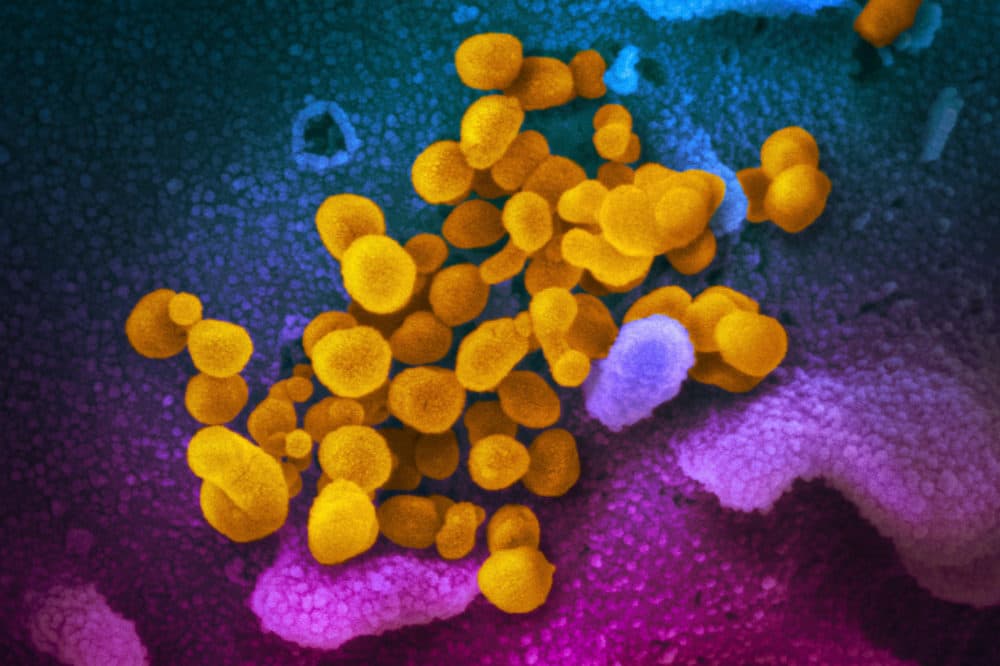Advertisement
Hoarding Of Malaria Drug Under Investigation As Potential COVID-19 Treatment Undermines Public Health Efforts, Doctors Say
Resume
A drug few people have heard of is in high demand as President Trump promotes it as a potential treatment for COVID-19. Hydroxychloroquine may work, and it may not.
“I feel good about it. That’s all it is, just a feeling,” President Trump said during a White House briefing last week. “You’re going to see soon enough.”
Drug trials are under way to determine if the medicine, which is approved for malaria, lupus and rheumatoid arthritis, meets FDA standards to treat COVID-19. In the meantime, there’s a run on the drug at pharmacies across the country, including in Massachusetts.
“Our members are definitely seeing more demand for this medication and possibly some people trying to hoard the medication,” said Todd Brown, executive director of the Massachusetts Independent Pharmacists Association.
According to Brown, it appears the hoarders include doctors who are writing prescriptions for themselves or family members.
“Pharmacists are seeing an increase in requests and prescriptions for them, in instances where it's not clear why the patient needs it at this time,” he said.
Brown is suggesting that pharmacists restrict prescription quantities and only fill prescriptions for patients with an active need for hydroxychloroquine.
In a statement, CVS Health said the company is “monitoring the global pharmaceutical manufacturing environment and working with our suppliers to ensure we can continue filling prescriptions for our pharmacy patients and plan members.”
CVS says it has an adequate supply of hydroxychloroquine and is taking steps to make sure the supply remains stable. Some data show hospitals stocking up on the drug, as well.
Some state pharmacy boards are limiting prescriptions for hydroxychloroquine and related drugs. The Massachusetts Board of Registration in Pharmacy did not respond to questions posed in an email.
If doctors are hoarding, some colleagues say that’s unethical. Dr. Michael Barnett, a primary care physician and assistant professor at the Harvard T.H. Chan School of Public Health, says that if the drug works, it must be saved for those most in need.
“There are front-line physicians where, if this medication is actually effective or can be used to prevent coronavirus, they certainly could merit treatment with that,” Barnett said. “But we are very far from knowing whether it’s effective in that manner. “
There’s less research on whether hydroxychloroquine might prevent the coronavirus. But Barnett said he can see why a doctor or nurse might say, "Hey, I can’t get the masks or goggles or gowns I need to protect myself, why not try this medication?”
Barnett is sympathetic, but he points out this powerful medicine has serious side effects, so it should not be taken unless there’s a known benefit.
“Having sort of a free-for-all in terms of prescribing for oneself and just deciding that ‘I’m going to grab some while I can,’ is the kind of mentality that can really undermine our efforts to actually have a concerted public health campaign against this disease,” Barnett said.
And then there are the patients with lupus and rheumatoid arthritis who take hydroxychloroquine daily to reduce swelling and rashes. Dr. Jeff Sparks says his patients at Brigham and Women’s Hospital were already fretting about having enough medicine on hand if stores close or it’s hard for them to go out. And then the president began calling the drug a game changer.
“The entire last week seemed to be filled with a lot of anxiety about what to do about medications, and in particular, patients asking for refills for hydroxychloroquine,” Sparks said.
Some patients are already being told they can’t get the medication or can only get a limited supply. The Lupus Foundation has asked congressional leaders to ensure supplies for lupus patients.
Sparks says hydroxychloroquine is what keeps many of his patients stable.
“So even if patients are doing well, stopping the medication could cause them to flare, which means that they then need to go on other immunosuppressants ... or even get admitted and potentially get exposed [to the coronavirus] in the clinical setting," Sparks said.
He added that hydroxychloroquine, like ventilators and masks, is a medical resource the country needs to learn to manage more carefully.
This segment aired on March 22, 2020.
